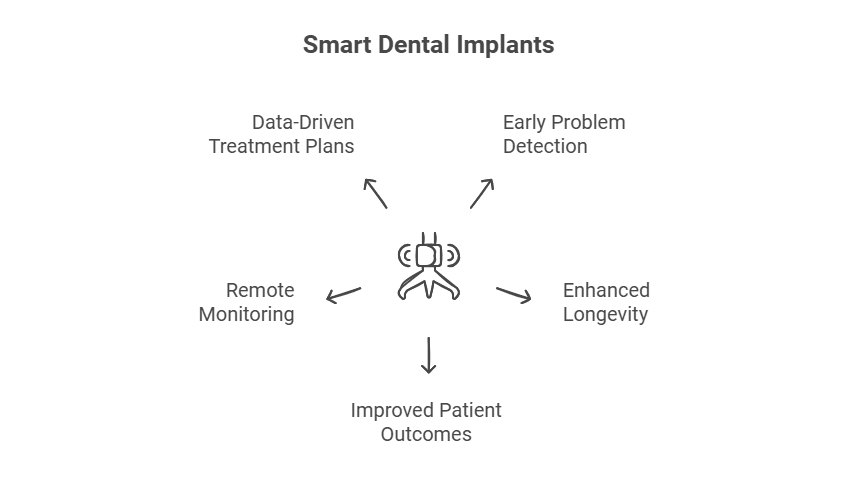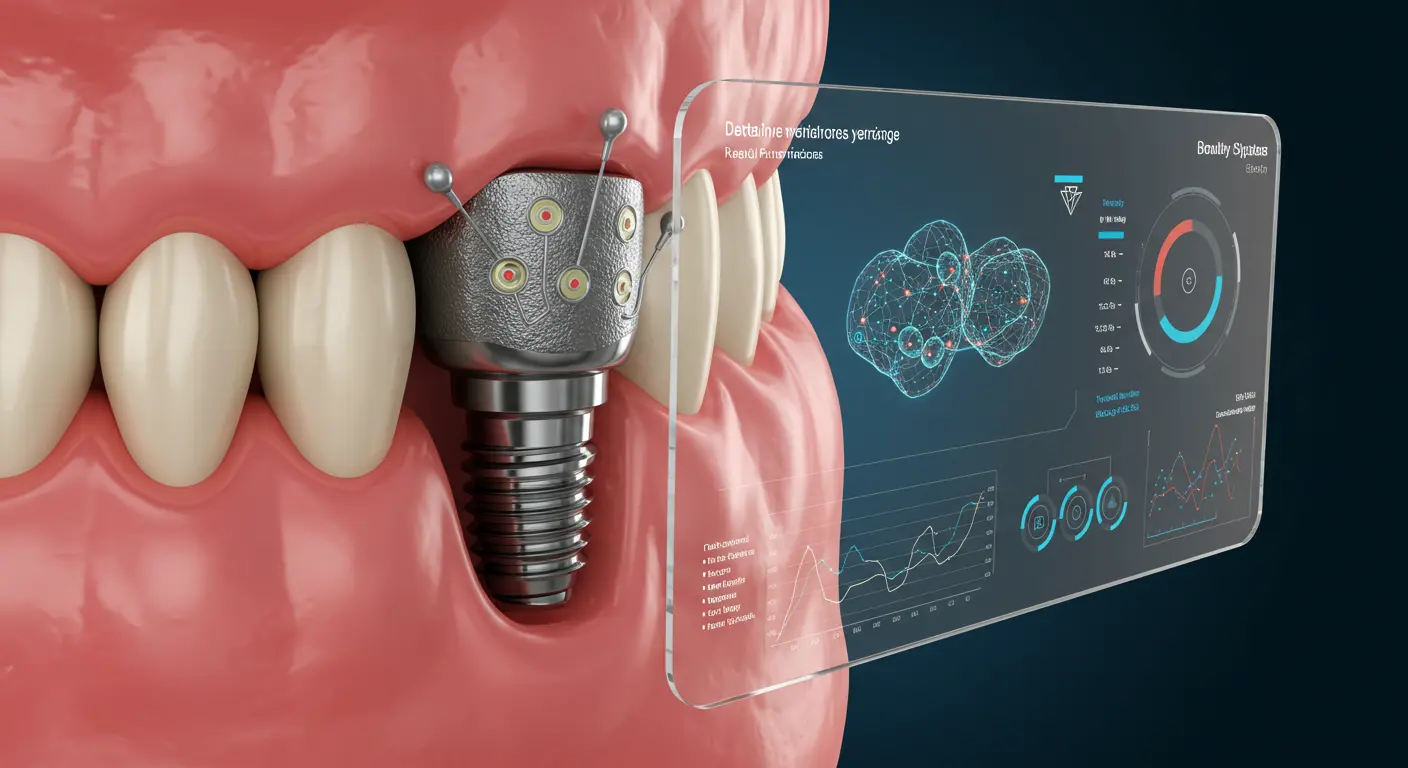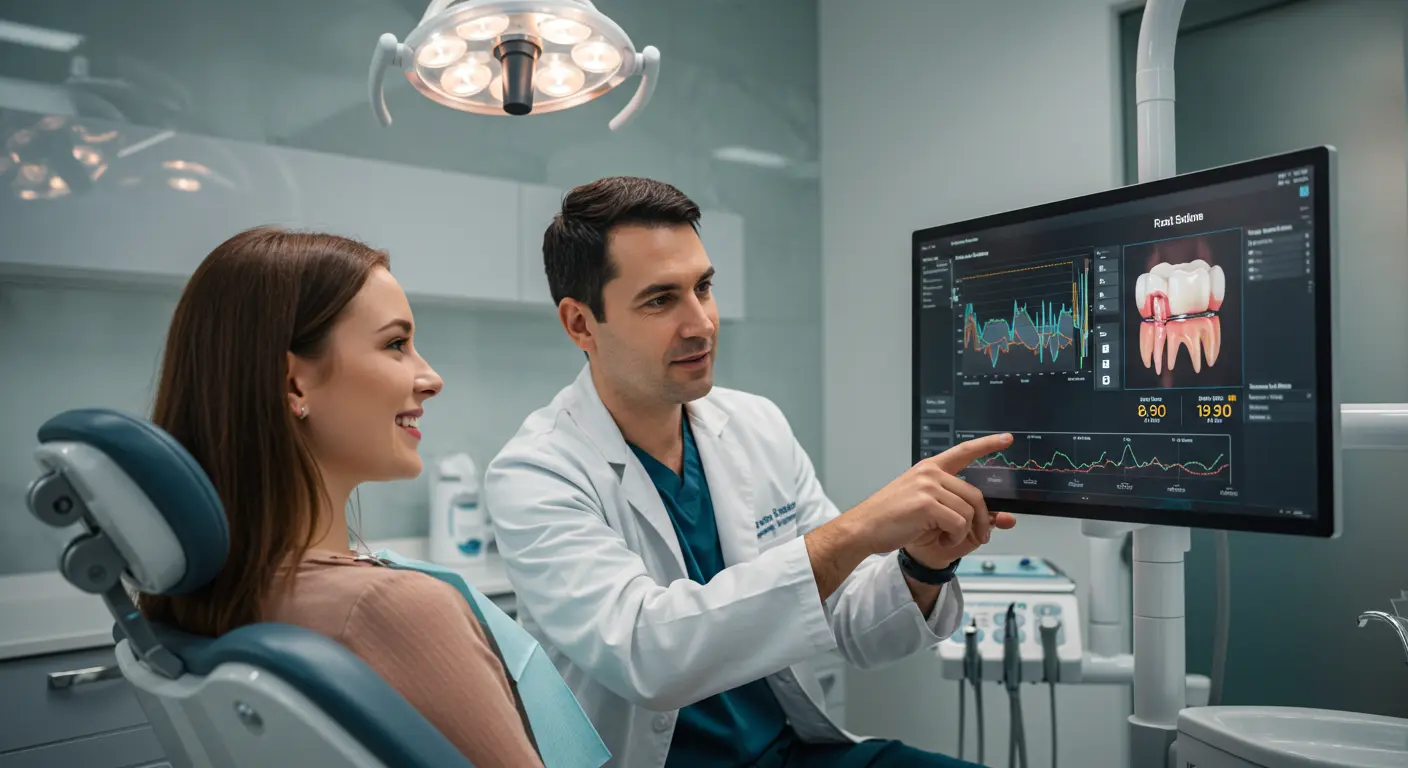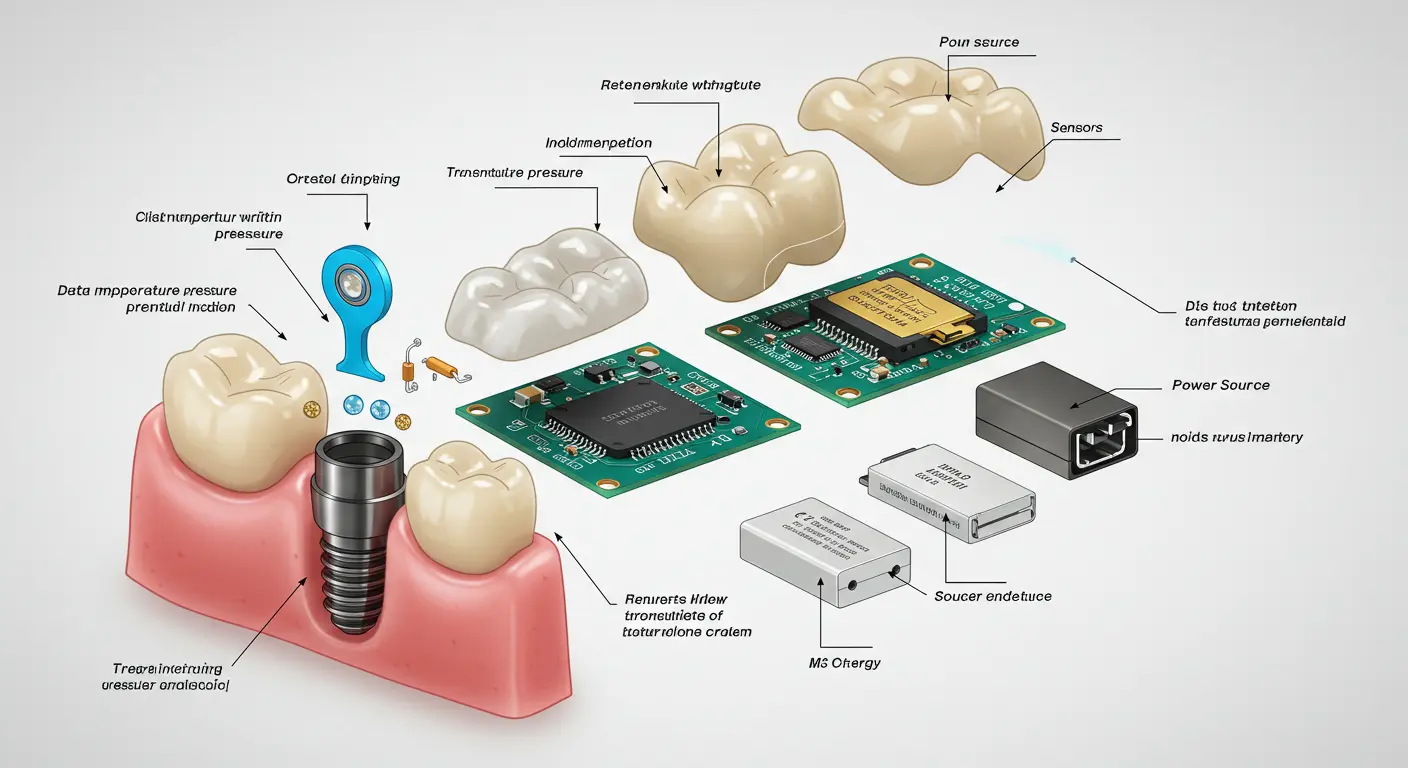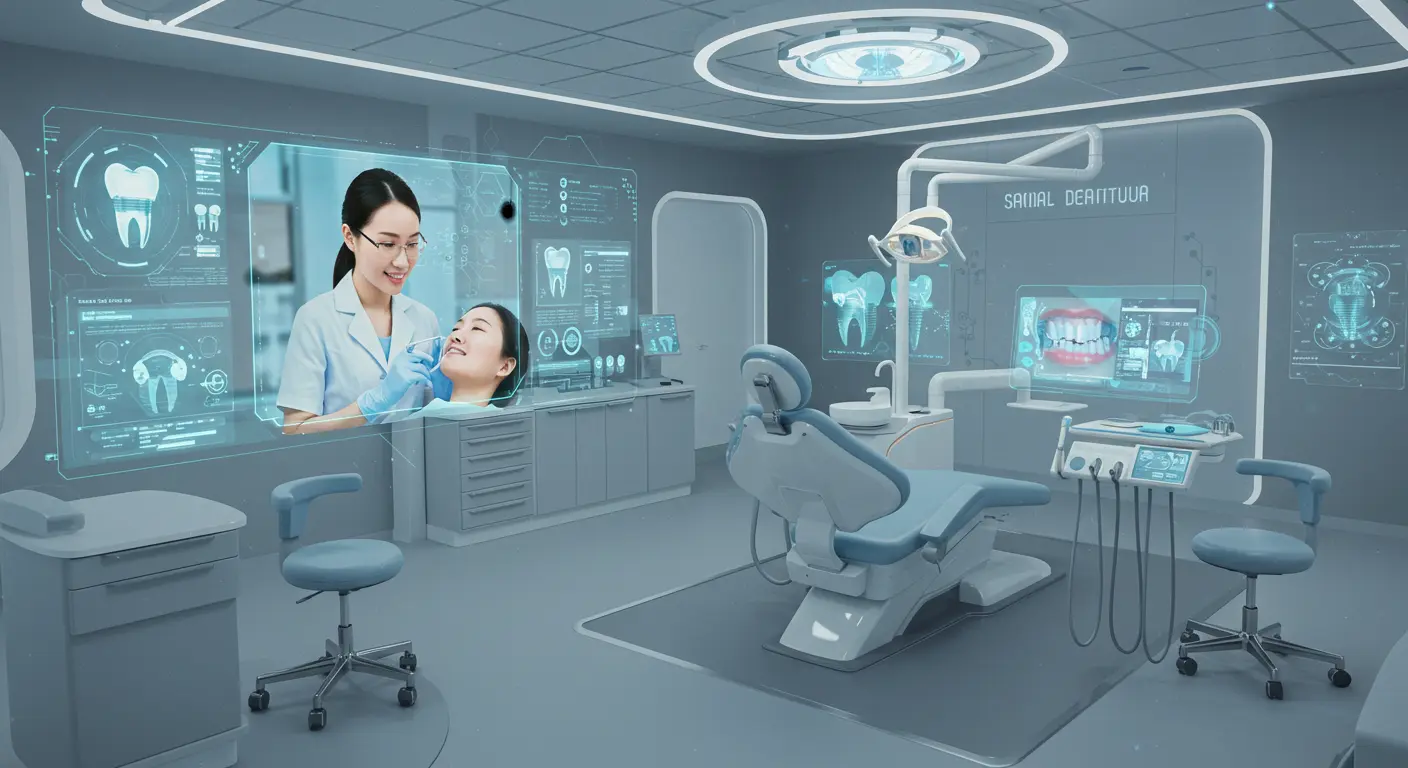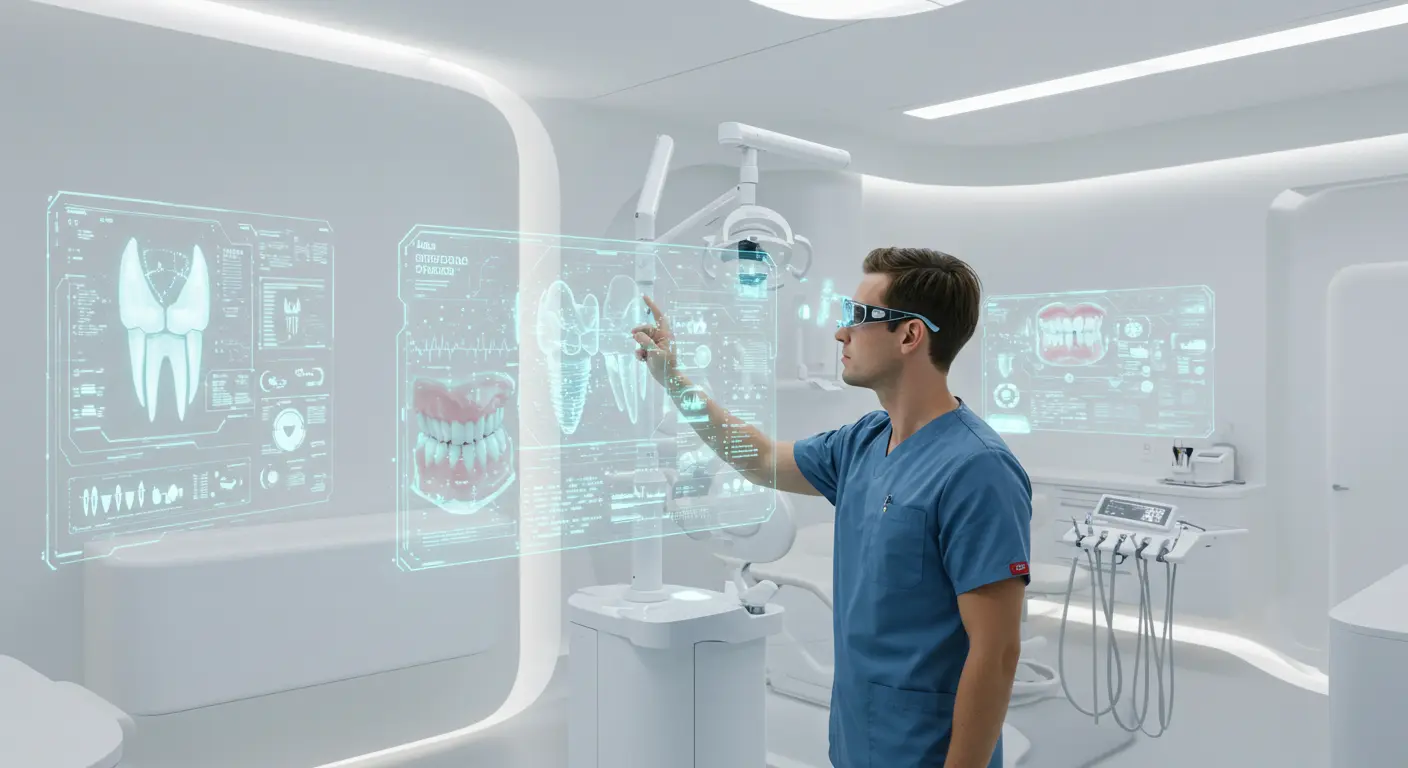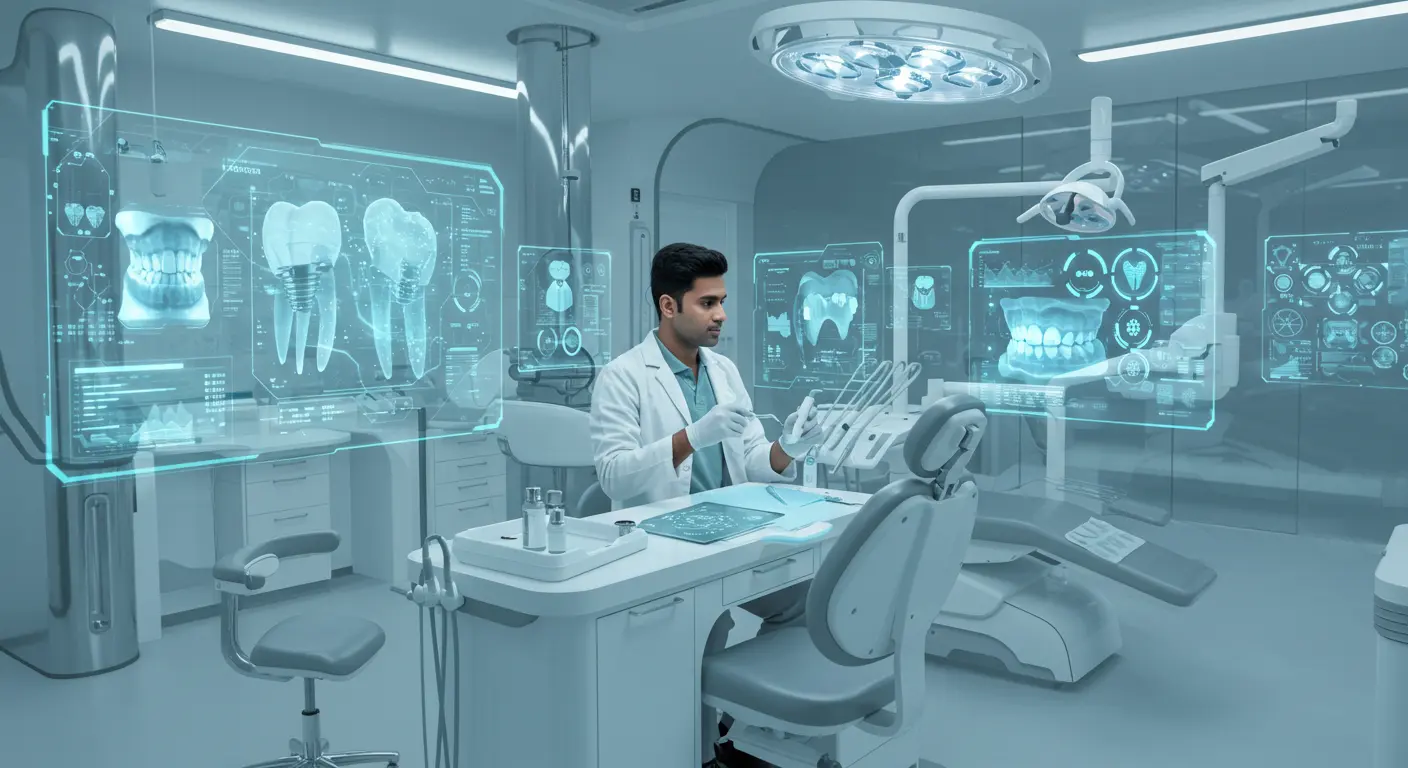Smart Dental Implants with Sensors: Revolutionizing Modern Dentistry
Dental implants have long been a reliable solution for replacing missing teeth, offering durability and functionality. However, advancements in technology are pushing the boundaries of traditional implants. Smart implants with sensors are emerging as a groundbreaking development, combining dental restoration with cutting-edge innovation. These advanced implants are equipped with sensors capable of monitoring oral health in real time, enabling early detection of complications and enhancing treatment outcomes.

What Are Smart Dental Implants with Sensors?
Smart dental implants are equipped with miniaturized sensors embedded within their structure. These sensors continuously monitor various factors related to the implant’s condition and surrounding oral environment. The collected data is transmitted wirelessly to external devices, allowing dentists and patients to track the health of the implant.
Key Features of Smart Dental Implants:
Real-Time Monitoring: Tracks pressure, temperature, and movement around the implant.
Infection Detection: Identifies early signs of bacterial infection or inflammation.
Pressure Sensors: Monitors bite force to prevent overloading and implant failure.
Wireless Communication: Sends data to smartphones or dental professionals for quick analysis.
Energy-Efficient Design: Uses minimal power with rechargeable or self-sustaining energy systems.
Benefits of Smart Implants with Sensors
1. Early Problem Detection
Smart implants can identify potential complications, such as infections, micro-movements, or excessive pressure, before they escalate. This enables dentists to take preventive measures, reducing the risk of implant failure.
2. Enhanced Longevity
Continuous monitoring ensures that the implants remain in optimal condition. Issues like bone resorption or gum recession can be detected early, allowing timely interventions to preserve implant stability.
3. Improved Patient Outcomes
With real-time data, dentists can personalize treatments based on each patient’s unique oral conditions, leading to better and faster recovery.
4. Remote Monitoring and Alerts
Patients can receive instant alerts about abnormalities, eliminating the need for frequent dental visits and ensuring peace of mind.
5. Data-Driven Treatment Plans
The data collected by smart implants helps dentists refine their strategies, improving overall oral health management.
Applications of Smart Dental Implants
1. Monitoring Healing Post-Surgery
Smart sensors track the healing process after implant placement, detecting early signs of complications such as infection, swelling, or poor osseointegration (bonding with bone).
2. Long-Term Maintenance
For patients with high-risk conditions like diabetes or periodontal disease, smart implants provide continuous monitoring, ensuring proactive care.
3. Bite Force Analysis
By monitoring bite forces, smart implants help prevent fractures caused by excessive pressure, preserving the integrity of the implant and surrounding tissues.
4. Implant Integration with AI
Future advancements may integrate artificial intelligence to predict issues before they arise, further enhancing precision and reliability.

How Do Smart Implants Work?
Sensor Placement: Sensors are embedded within the implant structure during manufacturing.
Data Collection: The sensors measure factors like temperature, pressure, and pH levels in the mouth.
Wireless Transmission: The collected data is sent to mobile applications or dental offices via Bluetooth or Wi-Fi.
Analysis and Alerts: Specialized software analyzes the data, generating alerts for abnormalities or necessary actions.

Challenges and Future Prospects
Current Limitations:
Cost: Smart implants are more expensive than traditional implants due to the advanced technology involved.
Power Supply: Sensors need a reliable energy source, though developments in wireless energy transfer and miniaturized batteries are addressing this issue.
Data Security: Ensuring patient data privacy remains a priority as technology evolves.
Future Trends:
AI Integration: Machine learning algorithms could enhance predictive analytics for implant health.
Biocompatible Materials: Further research may lead to implants that promote faster healing and integration with bone tissue.
Self-Healing Sensors: Innovations may allow sensors to repair minor damages automatically, extending implant life.
Cloud-Based Monitoring Systems: Patients and dentists may access data anytime, anywhere, improving care accessibility.

Frequently Asked Questions About Smart Implants
1. Are smart implants safe?
Yes, smart implants are designed using biocompatible materials and undergo rigorous testing to ensure safety and reliability.
2. How long do smart implants last?
With proper care, smart implants can last as long as traditional implants, often decades, but their added monitoring features may further extend their lifespan.
3. Do smart implants require special maintenance?
No special maintenance is required beyond standard oral hygiene practices and regular dental check-ups.
4. Are smart implants covered by insurance?
Insurance coverage varies, so patients should consult their providers to determine eligibility.
5. Can smart implants be upgraded?
Future versions may allow upgrades, but current models focus on providing long-lasting, reliable performance.

A Smart Future for Dental Implants
The integration of smart implants with sensors marks a transformative leap in dental technology. These implants not only restore function and aesthetics but also provide proactive monitoring, enhancing patient care and reducing complications. While challenges remain, continuous advancements promise even more innovative features, ensuring that smart implants become the standard for dental restoration.
For those seeking cutting-edge solutions to restore their smile, smart dental implants offer a glimpse into the future of personalized and connected dentistry. Consult your dental professional today to learn more about this revolutionary option.


